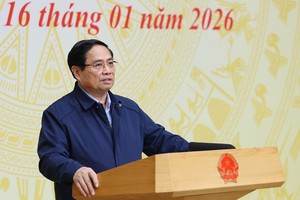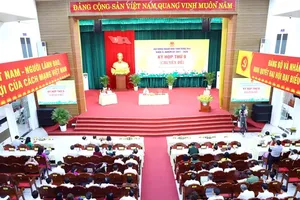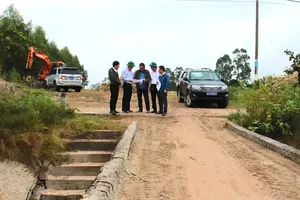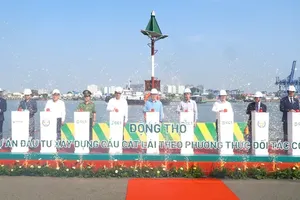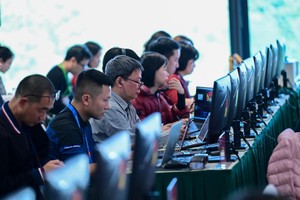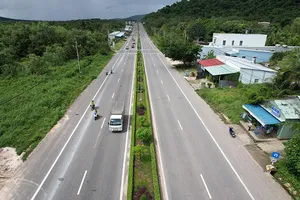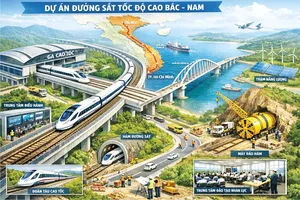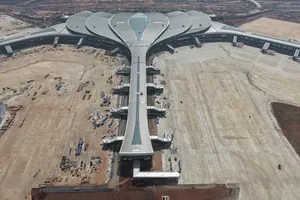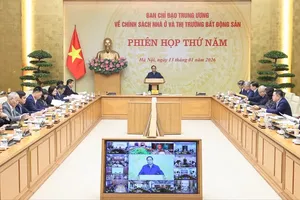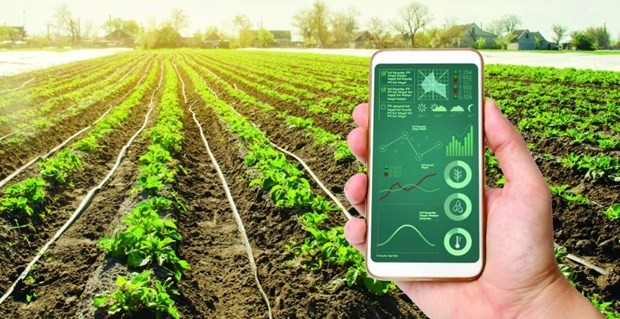 |
Illustrative image (Source: nongnghiep.vn) |
Through digital transformation, farmers will build brands to move towards transparency as they can integrate information, images and multimedia into their products, he added.
According to statistics from the Ministry of Agriculture and Rural Development, by the end of 2021, Vietnam had more than 27,000 cooperatives but only 2,200 of them applied high technology and digital technology in production. Millions of farmers are still struggling with the problem of shifting from traditional agriculture to high-quality, clean agriculture.
To improve efficiency in agricultural production, promote commodity market development, and international integration, farmers today need to be knowledgeable and understand science and technology in addition to their farming skills.
Improving farmers' qualifications is not only a long-term policy and orientation of the Party and the Government, but also an important foundation for Vietnam's sustainable agricultural development, towards the goal of each agricultural product's brand being on the digital transformation map.
Le Duc Thinh, Director of the Department of Economic Cooperation and Rural Development under the Ministry of Agriculture and Rural Development, said that between 2010-2020, more than 2.84 million rural laborer’s were provided with vocational training to increase human resources in agriculture.
The ministry has submitted to the Government a project on vocational training in agriculture for rural laborer’s until 2030.
Thinh said that it’s important to increase education levels and farming skills as well as knowledge on production and business management for farmers.
According to economists and agricultural experts, criteria to determine the agriculture programs and projects using high technology are needed to ensure capital and encourage investment in high-tech agriculture. It’s also necessary to complete trade promotion policies to expand markets and remove trade barriers for high-tech agricultural products' consumption.
The Government needs to soon issue regulations on the implementation of value chain contracts in agriculture, in which, sanctions for involved parties must be clearly stated in order to limit risks and ensure sustainability in agricultural value chains.
Regulations on insurance in agricultural production activities are also important to minimize losses and risks, along with policies to encourage the development of the agricultural insurance market, experts suggested.
Chairman of Vietnam Farmers’ Union Luong Quoc Doan said to support farmers in digital transformation and the digital economy, the union will promote communications to help raise farmers’ awareness about digital transformation, and develop smartphone applications, and carry out digital financing models for farmers such as peer-to-peer lending, cashless payment, and mobile money.
Doan said that as a pillar of the national economy, digital transformation in the agricultural sector will be one of the key factors to help farmers, farms, cooperatives, and businesses improve productivity and quality, optimize production activities, reduce costs, and increase profits.
Digital transformation can address some of the weaknesses of Vietnam’s agriculture sector, particularly the fragmented and small production. Successful digital transformation in agriculture will be an important factor to the success of the national digital transformation program.

